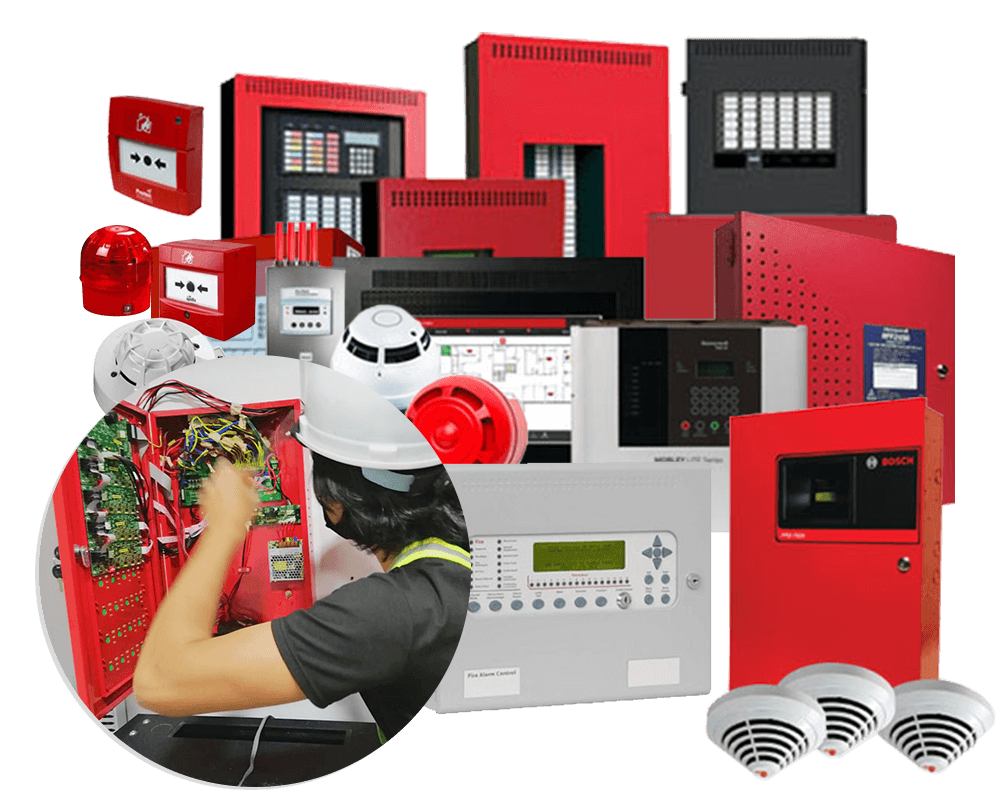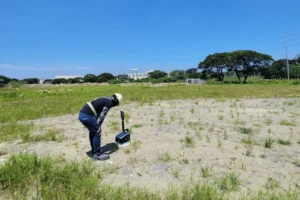Fire safety is one of the most important investments for any building—whether it’s a residential complex, commercial property, or industrial facility. Behind every reliable fire alarm system is a dependable supplier who ensures that all components meet quality and regulatory standards. Choosing the right fire alarm system suppliers can make the difference between life-saving performance and costly system failures. Understanding their role, assessing their credibility, and knowing what to expect from them are crucial steps toward creating a secure and compliant environment.
Understanding the Role of Fire Alarm System Suppliers
Fire alarm system suppliers play a vital role in safeguarding properties by providing essential fire detection and warning equipment. They act as the bridge between manufacturers and end-users, ensuring that the products supplied are compliant with industry standards such as NFPA, UL, or ISO certifications. Their job goes beyond selling devices—they are responsible for guiding clients on the right types of systems suited for specific applications. A trustworthy supplier offers more than just products; they provide knowledge, experience, and technical assistance that ensure systems are designed for accuracy and durability.
In many cases, suppliers also collaborate with contractors and safety engineers to ensure seamless installation and integration of fire alarm systems. This coordination ensures that the devices function optimally within the entire safety network of a building. When sourcing a supplier, one must consider their ability to provide comprehensive solutions rather than just individual components. A reputable supplier maintains consistency in product quality and stays updated on evolving fire safety technologies to protect both life and property.
Essential Features to Expect from Reliable Fire Alarm System Suppliers
Dependable fire alarm system suppliers offer a complete range of fire detection solutions tailored to diverse environments. These may include conventional fire alarm systems, addressable alarm systems, or wireless alarm solutions designed for modern facilities. What sets reliable suppliers apart is their commitment to quality assurance and their ability to meet various client requirements. They should also provide a diverse selection of detectors, control panels, alarms, and monitoring systems compatible with different safety infrastructures.
Here are key features to expect from reputable suppliers:
- A comprehensive product lineup for residential, commercial, and industrial use
- Availability of advanced detectors such as smoke, heat, gas, and flame sensors
- Integration options with emergency lighting, sprinklers, and evacuation systems
- Full technical support, training, and post-installation services
- Warranty coverage and access to genuine replacement parts
- System upgrade options for compliance with new safety regulations
- Responsive customer service for maintenance and troubleshooting
Beyond product quality, reliable suppliers also offer maintenance contracts and professional guidance to ensure continuous system reliability. Their role is not limited to the sale but extends to long-term safety management. This proactive approach helps property owners and facility managers maintain compliance and minimize fire risks effectively.
Evaluating the Credibility and Quality of Fire Alarm System Suppliers
When selecting a supplier, credibility is non-negotiable. The first step is to verify their certifications, licenses, and compliance with recognized safety standards. Certified suppliers guarantee that their products undergo rigorous testing and inspection before reaching the market. Equally important is checking the supplier’s reputation through customer reviews, industry experience, and professional references. Longevity in the market often signals reliability and commitment to quality service.
Transparency is another essential indicator of trustworthiness. A credible supplier provides detailed information about system specifications, installation guidelines, and after-sales support. They are open about pricing, warranty terms, and service agreements, ensuring no hidden costs or misleading claims. It’s also advisable to compare multiple suppliers based on their service scope, technical expertise, and responsiveness. A detailed comparison helps avoid overspending while ensuring that you receive value and dependable performance.
Working with established fire alarm system suppliers provides assurance that the equipment will meet safety codes and deliver consistent protection. They also offer scalable solutions, allowing property owners to expand or modify systems as building requirements evolve. Ultimately, a supplier’s reliability is reflected not only in their products but also in their commitment to safeguarding lives and assets.
How Fire Alarm System Suppliers Contribute to Building Safety
Fire alarm system suppliers are integral to building safety management. Their expertise ensures that every installed system provides early detection and accurate alerts during emergencies. A well-chosen supplier helps minimize response time by delivering technology that detects even minor signs of fire. This early warning capability reduces potential damage and saves lives. Moreover, professional suppliers ensure that every component—from detectors to alarm panels—functions cohesively as part of a larger safety network.
Suppliers also provide crucial maintenance and inspection services, ensuring that systems remain operational throughout their lifespan. Regular servicing prevents false alarms, equipment malfunction, and non-compliance with fire safety laws. Many suppliers now integrate their systems with building automation and emergency evacuation procedures, further enhancing overall safety. Industries such as healthcare, education, hospitality, and manufacturing rely heavily on reputable suppliers to maintain compliance and safety readiness.
Through continuous product innovation and adherence to regulations, suppliers play a critical role in preventing disasters. By ensuring that every system functions precisely as designed, they help organizations build a strong foundation of trust, safety, and preparedness.
Common Challenges When Choosing Fire Alarm System Suppliers
Selecting the right supplier is not always straightforward. One of the most common challenges is dealing with counterfeit or uncertified fire alarm products. These low-quality devices may appear genuine but fail to perform when needed most. Another issue is the lack of consistent after-sales support. Some suppliers disappear once the sale is complete, leaving clients without maintenance or technical assistance.
Miscommunication can also arise between suppliers, contractors, and clients, leading to incorrect installations or system incompatibility. Budget constraints sometimes push property owners to prioritize cost over quality, a mistake that can lead to long-term safety risks. To avoid these problems, it’s crucial to adopt careful vetting practices such as:
- Verifying certifications and regulatory compliance
- Requesting detailed product documentation
- Asking for client references or project portfolios
- Comparing quotations and service inclusions
- Reviewing warranty and maintenance agreements
Being diligent during supplier selection can prevent expensive replacements and downtime later. The goal is to build a long-term partnership with a supplier that values reliability, transparency, and client safety above all else.
Innovations and Trends Shaping Modern Fire Alarm System Suppliers
The fire alarm industry continues to evolve with advancements in technology. Today’s fire alarm system suppliers are embracing innovations such as IoT integration, allowing systems to communicate real-time alerts to mobile devices. Cloud monitoring and AI-based analytics now enable predictive maintenance, identifying potential issues before they cause failures. These innovations improve accuracy, response time, and reliability in fire detection.
Suppliers are also introducing energy-efficient and environmentally friendly fire alarm solutions to support sustainable building practices. Wireless systems are gaining popularity for their flexibility, especially in buildings where traditional wiring is difficult or costly. Moreover, smart alarm systems can now integrate with security and access control systems, offering a complete safety management approach.
As digital transformation accelerates, suppliers must continuously update their knowledge and products to meet the demands of modern buildings. By offering cutting-edge technologies and maintaining compliance with global standards, they help clients achieve both safety and efficiency goals.
Choosing the Best Fire Alarm System Supplier for Your Needs
Finding the best supplier requires evaluating several critical factors. Consider their proximity, the range of systems they offer, their level of technical support, and their understanding of your industry’s specific needs. Local suppliers can often provide faster service, but international suppliers may offer broader expertise or specialized technologies. Balancing these factors ensures a well-informed decision.
When comparing suppliers, focus on long-term value rather than upfront cost. Reliable suppliers prioritize client relationships and offer ongoing maintenance and support. They also assist in system upgrades and ensure that all products remain compliant with updated safety standards. Before finalizing your decision, request a detailed quotation and review the supplier’s proposal to ensure it aligns with your requirements.
Building a strong partnership with the right supplier ensures continued safety and peace of mind. Their expertise becomes an extension of your building management system, contributing to long-term operational safety and regulatory compliance.
Frequently Asked Questions (FAQ)
1. What certifications should I look for in a fire alarm system supplier?
Look for suppliers that comply with NFPA, UL, or ISO certifications, ensuring their products meet international safety standards.
2. How often should a fire alarm system be serviced or maintained?
Routine inspections are typically done semi-annually or annually, depending on local fire codes and the type of building.
3. Are wireless fire alarm systems as reliable as wired ones?
Yes, modern wireless systems are reliable when installed correctly and regularly maintained. They offer flexibility without compromising safety.
4. What’s the average cost range when buying from fire alarm system suppliers?
Costs vary based on system complexity, building size, and brand. It’s best to request detailed quotes for accurate pricing.
5. Can suppliers customize fire alarm systems for specific building requirements?
Yes, many suppliers provide customized designs tailored to unique structures, occupancy levels, and risk factors.
Takeaway
Partnering with reliable fire alarm system suppliers is a proactive step toward ensuring safety, compliance, and peace of mind. Their expertise, quality products, and technical support form the backbone of every effective fire protection strategy. By selecting a certified, transparent, and service-oriented supplier, property owners and facility managers can safeguard lives and investments while maintaining confidence in their fire safety systems.







